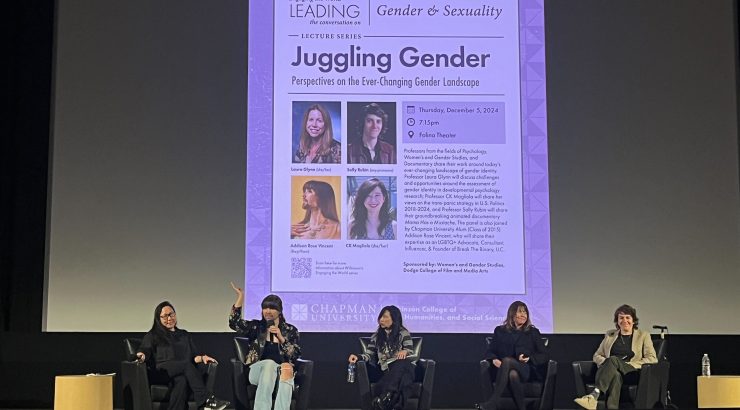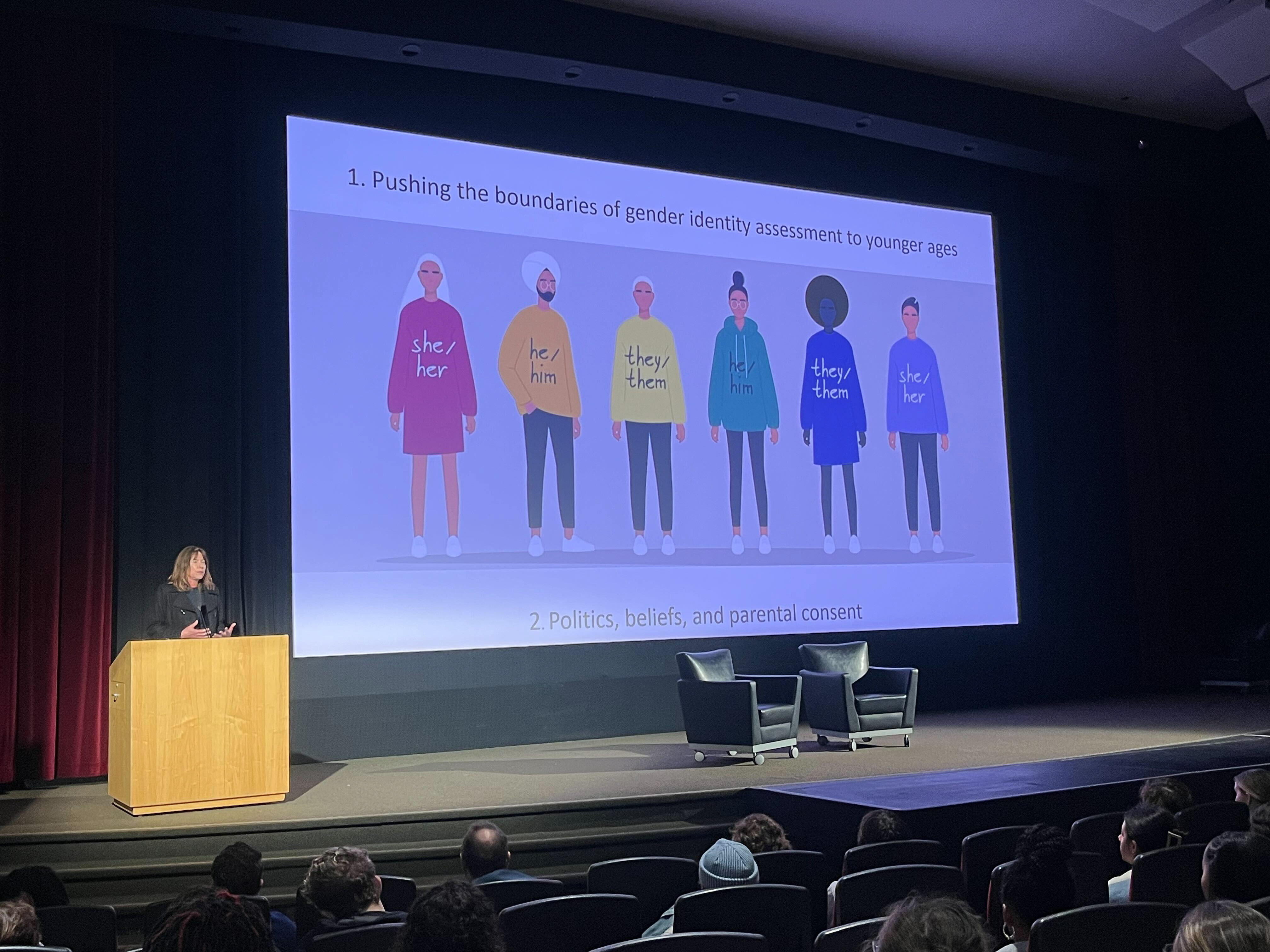
Navigating Today’s Evolving Landscape of Gender Identity
December 16, 2024
This year’s Engaging the World: Leading the Conversation on Gender & Sexuality marked an incredible interdisciplinary and collaborative journey of exploring contemporary ideas of gender and sexuality, affirming that the arts, humanities, and social sciences are at the forefront of some of the most prominent conversations our nation and world are having today. Concluding this year’s series, Wilkinson College of Arts, Humanities, and Social Sciences hosted Chapman professors from the fields of Psychology, Women’s and Gender Studies, and Documentary Film to share their work around today’s ever-changing landscape of gender identity.

Engaging the World Fall 2024 – Photo by: Dani Espiritu
Professor Laura Glynn (Psychology) discussed the challenges and opportunities around the assessment of gender identity in preschool-age children, while Professor CK Magliola (Women’s and Gender Studies) shared her views on the trans-panic strategy in U.S. politics through 2018-2024.
“I hope that the audience left with an understanding of how sex/gender plays an important role in the developmental origins of health and also that young children have very flexible views of gender identity,” said Dr. Glynn.
In addition to the discussions, Professor Sally Rubin (Documentary Film) shared their groundbreaking animated documentary, “Mama Has a Mustache: Kids Talk Gender” The quirky 10-minute documentary featured audio interviews with a diverse group of young children. In their own words, the children reflect on identity and family outside the traditional gender binary.
“I enjoyed the film and thought the creators of it did a great job of portraying what they were trying to illustrate,” said Elexiah Narvaez (’28 Psychology, Women and Gender Studies minor). “Through the film, I learned a lot about children’s minds and about how socially a lot of our norms and rules are imaginatively created. All of our ideologies about gender, and sexual identity are socially constructed.”
Narvaez realized after watching the film, just how “conditioned” people are but also just how “unconditioned” people can be.
“The film truly showed me just how prejudiced and oppressive we teach young children to be without even realizing it. Children are genuinely not racist, sexist, homophobic, or ableist at birth. However, we condition them to be by either not exposing them to families or individuals who go against societal norms or by avoiding it altogether,” she said.
The study behind the film highlights the growth in the sciences behind how early gender identification can begin. Ella Wissing (she/her/hers) (‘28 Film & TV Production, Women and Gender Studies minor) believed the film was a reflection of how early the installment of disdain girls gain towards their girlhood.
“This beautifully crafted documentary portrays an uplifting message of hope for the future for gender-nonconforming parents & families. The unfiltered kindness of children, pride to be children to non-binary and transparent because of their differences, and feeling free because of it, gave me the joy of expression I didn’t feel as a young girl,” she said.
This year’s event series featured other amazing speakers such as Roxane Gay, author of The New York Times best-selling essay collection Bad Feminist, photographer Catherine Opie, who discussed her body of work with the first photograph she took at nine years old, and a panel of experts on Global Feminism who demonstrated how examining traditional feminist questions in non-Western cultural and historical contexts produces different avenues for understanding power, oppression, and political agency.
Thank you to everyone who supported ETW: Leading the Conversation on Gender & Sexuality. Please join us next year for our 2025 ETW: Leading the Conversation on the Environment and Building Resilient Futures.

